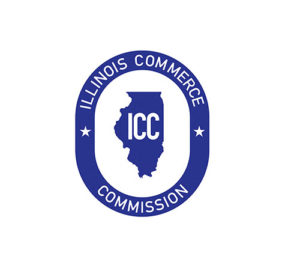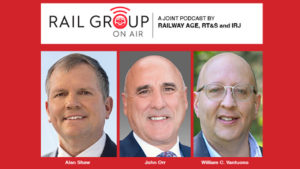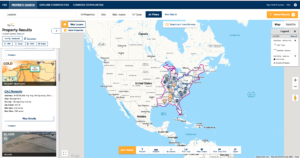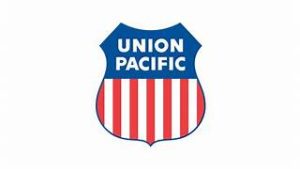Rail Group Staff Report: Global railway industry response to the COVID-19 pandemic
Written by Staff and newswire report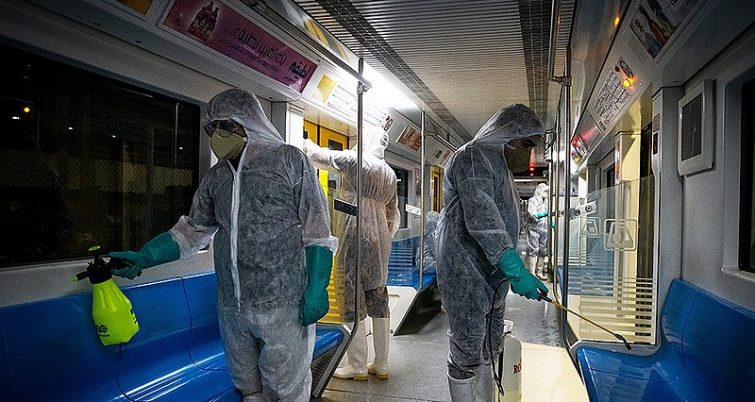
MARCH 12, 2020: The World Health Organization has declared COVID-19, otherwise known as the coronavirus, a pandemic, and the global railway industry is ramping-up its response. Following is a staff report from the editors at Railway Age, Railway Track & Structures and International Railway Journal that will be continuously updated with the latest developments.
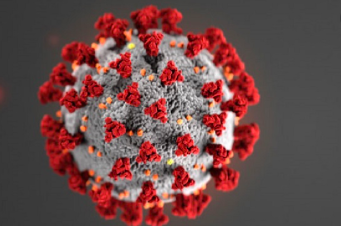
Transit agencies across the country have been hard at work sanitizing trains and stations.
U.S. DEVELOPMENTS
Following the lead of the New York Metropolitan Transportation Authority (MTA), New Jersey Transit is stepping up preventive measures. NJT has formed a task force that will meet regularly and share the latest information from state and federal health officials. The task force consists of representatives from medical, emergency management, environmental, safety and communications departments. Like the MTA, NJ Transit is disinfecting its stations and railcars. “NJ Transit Rail, Bus, Light Rail and Access Link will enhance current cleaning procedures to augment our daily current practices and additional disinfection regimens,” the agency said in a statement.
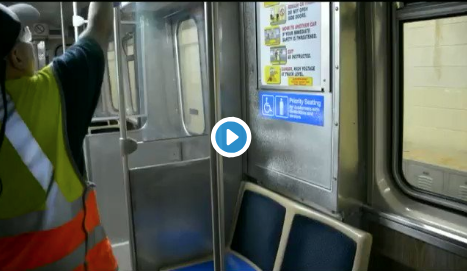
The Chicago Transit Authority released a video on how it is sanitizing trains and stations.
The two unions representing T&ES (Train & Engine Service) employees—the Brotherhood of Locomotive Engineers and Trainmen (BLET) and the SMART-Transportation Division—sent a letter, signed by BLET President Dennis Pierce and SMART-TD President Jeremy R. Ferguson, to the Federal Railroad Administration (FRA) “urging [issuance of] guidelines directed toward U.S. rail carriers, employees and passengers, pertaining to, at minimum:
- “Sanitizing equipment such as (but not limited to) locomotive cabs, computers, remote control boxes, and communal areas such as passenger cars, offices, crew staging areas, company provided ground transportation, and away-from-home lodging facilities.
- “Providing crews and passengers with personal protective equipment, alcohol-based hand sanitizer strong enough to kill viruses, and other cleaning supplies as deemed appropriate.
- “Encouraging employees to stay home if they have respiratory symptoms, (coughing, sneezing, shortness of breath, and/or fever) and to leave work if they develop such symptoms while at the workplace. In doing so, we ask that FRA strongly encourage carriers to relax current attendance policies which can be described as unforgiving, at best, to employees who miss work due to illness.
- “Educating all rail employees (including supervisory staff) on the appropriate guidelines for self-monitoring of their health condition, as well as monitoring and addressing others who appear to be symptomatic.
- “Reporting to the appropriate health departments where employees have shown aforementioned symptoms that prevent them from carrying out their assigned duties.
- “Developing plans for employees who reside with, and/or come into direct contact with individuals who are symptomatic.
- “Encouraging carriers to develop health programs and practices that exceed FRA’s recommended guidelines.
- “Encouraging all parties to understand and comply with other such guidelines issued by the CDC (Center for Disease Control and Prevention).
Additionally, Pierce sent a similar letter to the National Railway Labor Conference, the American Short Line and Regional Railroad Association (ASLRRA) and the American Public Transportation Association (APTA). Regarding sanitation, BLET wants railroads to supply hand sanitizer and wipes that contain 60-90% isopropyl alcohol. Wipes also should carry chlorhexidine gluconate (4%) and benzethonium chloride (0.5%).
FRA responded to the BLET/SMART-TD letter by saying that it “has taken a whole-of-government approach that has paved the way for a whole-of-America response, with the CDC being the appropriate governmental source for guidance on COVID-19.”
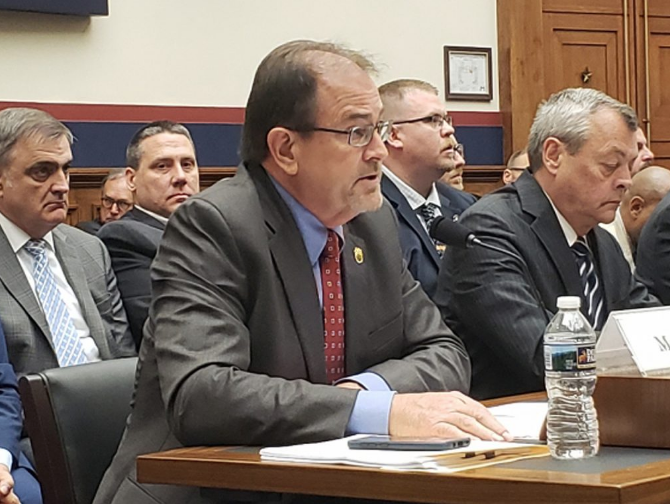
June 20, 2019: BLET President Dennis Pierce testifies before the House Subcommittee on Transportation and Infrastructure about two-person crews.
Commenting on the BLET/SMART-TD letter, Railway Age Capitol Hill Contributing Editor noted that the FRA “has no authority in this area,” and that because the letter was not sent to the railroads, it “perhaps was intended to avoid a quid pro quo response from the carriers—the trade being authority to institute one-person crew operations that the two unions are refusing to consider at the bargaining table.”
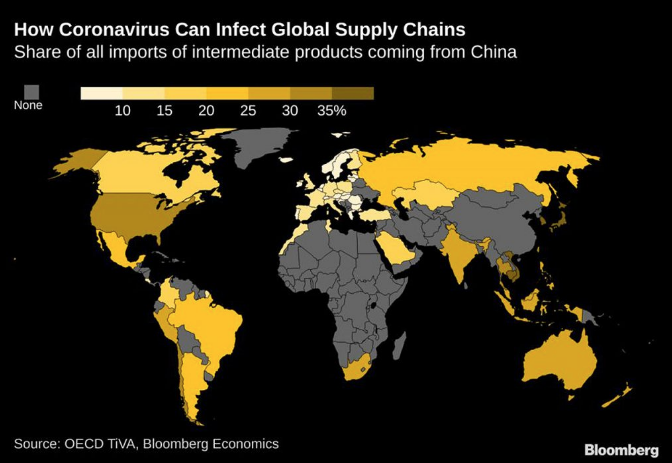
APTA has cancelled its Legislative Conference, scheduled to take place in Washington, D.C. from March 15-17. APTA said it “continues to monitor federal legislative action and its impact on public transportation on behalf of the industry. The association is considering alternatives and potential avenues through which to reschedule, relocate or redesign this conference for later in 2020. APTA’s top priority is the health and safety of our members and the health and safety of the communities they serve. This decision allows public transportation leaders to stay in their communities where they can focus on the health and safety of their riders and employees while continuing to provide safe and efficient transportation for the millions of Americans who rely on public transit.”
Amtrak trains are operating half-empty, cancellations are up 300%, and future bookings are down 50%, according to a Washington Post report. If this continues, revenue losses could be in the “several hundred million dollars,” prompting aggressive cost-reduction measures that include service cuts and “voluntary unpaid leave,” Senior Executive Vice President and Chief Operating and Commercial Officer Stephen Gardner said in a March 11 memo to Amtrak employees.
“At this rate, we believe we will likely suffer the loss of several hundred million dollars in revenue during this fiscal year — and we might lose more,” Gardner said. “You should expect significant reductions in train service across portions of our network in response to the sharp drop in ridership. Shortly, we will begin rolling out our voluntary leave program for those non-mission critical employees that are willing to take time off on an unpaid basis.”
Amtrak so far has suspended its Acela Express nonstop service between Washington and New York as demand dropped through May 26. It has suspended change fees on all existing and new reservations for tickets purchased before April 30, though it so far has not been subjected to coronavirus-related travel restrictions, as has the airline industry following President Trump’s address to the nation.
Amtrak said it is stepping up cleaning. New protocols include more frequent (in some cases hourly) cleaning of trains and stations. Amtrak crews are wiping handrails, doorknobs, handles and surfaces, and the railroad is making hand sanitizer and disinfectant wipes available to passengers and workers aboard trains and in stations.
OVERSEAS DEVELOPMENTS
Numerous railway industry events overseas have been postponed or cancelled as organizers respond to the restrictions being placed on large gatherings of people to prevent the spread of the coronavirus. As well, the UIC (International Union of Railways) has formed a task force to assist operators in dealing with the rapidly escalating situation, and several overseas train operators have instituted aggressive measures, including more stringent train cleaning, steps to protect staff, ticket refunds without penalty and cancellation of services.
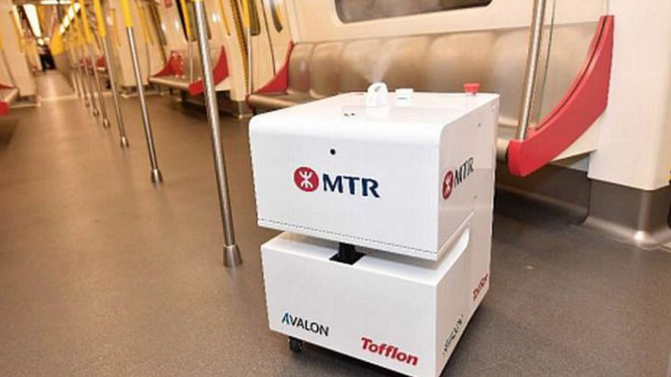
MTR is deploying 20 Vaporized Hydrogen Peroxide (VHP) robots.
- Hong Kong’s Mass Transit Railway (MTR) is deploying 20 Vaporized Hydrogen Peroxide (VHP) robots to deep-clean trains at depots as well as stations to improve protection against the spread of coronavirus. The VHP Robot was developed jointly by MTR and Avalon Biomedical, a Hong Kong biotechnology company. The robots are designed to automatically spray hydrogen peroxide solution, which is atomized to a specific concentration to ensure that disinfectants penetrate small gaps which are difficult to reach during normal cleaning. The objective is to eliminate viruses and bacteria such as staphylococcus aureus and Escherichia coli. MTR says the VHP Robot has passed tests and achieved the desired results. VHP Robots operate automatically by pre-setting the floor plan of the designated area. It is also possible to remotely control the robot manually within a distance of 20 meters using a mobile device. MTR says it normally takes about four hours to clean an eight-car train in automatic mode. MTR staff can also deploy the VHP Robot to deep clean a special situation, such as a passenger vomiting on a train, using diluted bleach. The robot recently disinfected staff facilities and passenger lifts at Mong Kok East station after a member of staff was diagnosed with Covid-19.
- Trenitalia and NTV-Italo have cut the frequency of their high-speed services. Both operators have closed their passenger lounges at stations, suspended at-seat service and are trying to maintain a three-meter distance between passengers inside trains. Trenitalia has installed hand sanitizers on trains, and both operators have stepped up train cleaning. NTV-Italo has issued train staff with specific instructions as well as protective equipment such as masks, disposable gloves and hand sanitizer.
- Thello has suspended both its overnight sleeper service between Venice, Milan and Paris, and its day trains linking Milan, Nice and Marseille until April 3. However, French National Railways (SNCF) appears to be still running its Paris – Turin – Milan TGV services.
- The EuroCity service linking Munich, Innsbruck and cities in northern Italy, operated jointly by German Rail (DB) and Austrian Federal Railways (ÖBB), has been suspended south of Innsbruck.
- DB (German Rail) says it has increased the use of soap and disinfectants on trains by up to 20% and is gradually reducing the already tight intervals for cleaning long-distance trains from four to two hours.
- Danish State Railways (DSB) introduced a range of measures on March 11. These include running longer trains during off-peak periods to allow passengers to sit further apart from one another, making all tickets refundable at no charge, no longer accepting cash payments onboard trains, deploying more staff at critical locations, and improving communication with passengers.
- The International Railway Congress in Vienna, organized by Austrian Federal Railways (ÖBB) and Russian Railways (RZD), originally scheduled for March 26–27, has been postponed until autumn 2020. The organizers say registration to the event will remain open and all fees for the event will remain in place for the new congress date.
- The 7th Biennial International Railway Forum & Conference (IRFC) in Prague has been postponed from March 26–27 to November 30-December 2.
- The Rail Industry Meetings event in Valenciennes, France, has also been rescheduled from March 25-26 to June 3-4.
- The UITP/Mena transport congress and exhibition, due to take place in Dubai from April 13-15, has been rescheduled to October 5-7.
- The EU Agency for Railway’s Rail Safety Days event, planned for May 26-28 in Valenciennes, has been cancelled, although the Agency intends to hold the event at a later date.
- Terrapinn and Spain’s railway industry association Mafex have postponed the Rail Live conference and exhibition in Madrid on March 31-April 2. Postponement of Rail Live followed postponement of IT Trans in Germany on March 3-5, the Rail Forum Europe conference on the EU’s Green Deal on March 18, and the International Union of Railways’ (UIC) World Congress on High-Speed Rail in Beijing, which was due to take place June 30 to July 3.
- InnoTrans 2020 (Sept. 22-25, Berlin) organizers have not announced postponement plans, instead choosing to ramp-up marketing efforts related to exhibitors from the cleaning industry: “Cleanliness and hygiene on buses, at stations, bus stops and on trains are becoming an increasingly important aspect for users of public transport and rail networks. This is also reflected in the growing size of the cleaning industry segment at InnoTrans 2020. In Hall 6.2 a variety of leading international companies will be exhibiting their innovative products for optimum cleanliness at InnoTrans. The focus this year is on efficient cleaning systems and those manufactured to customers’ specifications. The displays also include toilet waste disposal systems, washing units as well as cleaning agents, care products and disinfectants.”
*Reporting and analysis by David Briginshaw (IRJ), David Burroughs (IRJ), Andrew Corselli (Railway Age), Kevin Smith (IRJ), David Lester (RT&S), William C. Vantuono (Railway Age) and Bill Wilson (RT&S); plus Railway Age Capitol Hill Contributing Editor Frank N. Wilner.

